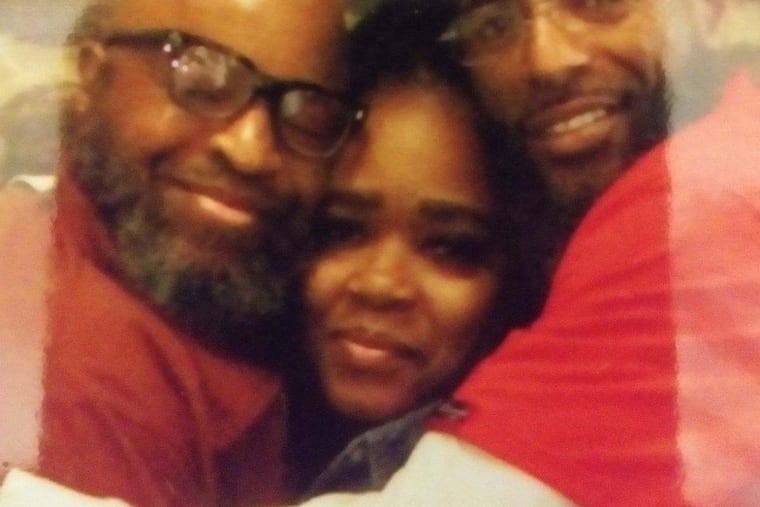A Philly man spent nearly 40 years in prison. New technology exonerated him.
Harold Staten, 71, was convicted of arson in 1986, but new technology determined that the initial investigation used flawed science.

After spending nearly 40 years behind bars for murder, a North Philadelphia man was exonerated Monday and was expected to be released from prison by the end of the day.
Harold Staten, 71, was convicted in 1986 of setting a fire that killed a man after his rowhouse on North Percy Street erupted in flames. Charles Harris and three others leapt from a second-floor window to escape the blaze, but he suffered severe burns and died from his injuries three days later.
But the case that led to Staten’s conviction was based in part on flawed science and conflicting testimony, prosecutors said Monday in recommending reversal of the guilty finding.
Common Pleas Court Judge Scott DiClaudio agreed and vacated Staten’s 1986 guilty verdict and ended his sentence of life in prison without parole.
Staten, who has been in prison for more than half his life, burst into tears, lowering his face into his hands as the judge announced the decision to set him free.
His son, Harold DeBose, was overwhelmed with emotion.
“Alhamdulillah. Alhamdulillah,” he exclaimed, using the Arabic phrase meaning ”Praise be to God.”
The decades-old case was revived by attorneys from the Pennsylvania Innocence Project, who cited advances in fire-investigation technology that they said called the conviction into question.
Nilam Sanghvi, legal director of the Pennsylvania Innocence Project, said the science led the lawyers to believe that the case against Staten was unjust, and they asked a judge to reverse his conviction.
“We’re just elated that we got this outcome. It’s been a long march waiting for the fire science to catch up,” said Amelia Maxfield, an attorney with the Exoneration Project.
At around 3:48 a.m. on Oct. 30, 1984, the rowhouse on North Percy Street caught fire while the four people inside — Harris; his girlfriend, Marion DeBose; her daughter Juanita; and tenant Robert Williams — were asleep. When the four realized the house was in flames, they jumped from second-floor windows to escape.
When firefighters arrived, they took the four to the hospital. Three days later, Harris died from his burns.
At Staten’s trial, prosecutors said he started the fire after a dispute over a can of missing roach spray. They said he went to the house, poured an accelerant into the vestibule, and set the building ablaze.
But a chemical analysis of samples taken from the house later showed no trace of accelerant — something Staten’s lawyers highlighted in seeking his release. The district attorney’s office, in reviewing the case at the request of Staten’s lawyers, hired a forensics expert who concluded there was not sufficient evidence the fire had been deliberately set.
Assistant District Attorney Carrie Wood, of the office’s Conviction Integrity Unit, said that conclusion called the entire case into question.
“The commonwealth can’t stand by a conviction when we have that type of evidence,” Wood said after Monday’s hearing.
In addition to questions raised by the science, Staten’s attorneys pointed to testimony from a 17-year-old girl who gave conflicting accounts about what she saw the night of the fire.
In an initial interview, the girl told police she did not see Staten near the house before, during, or after the fire. But in a later interview, the girl changed her story and said she saw Staten standing at the front door of the house.
On Monday, Staten’s younger brother, Melvin Lassiter fought back tears as he left the courtroom after the judge’s ruling.
“Glad he’s coming home,” he said.
Staten’s son, DeBose, said he has a long list of things he wants to share with his father, who went to prison when he was a teenager.
He wants his father to hug his granddaughter and his great-grandson. He wants to carefully guide him as he adjusts to a world that has changed so much during his decades in prison.
But, first, DeBose said, he wants to sit down and have a cup of coffee with his dad. Staten, he said, gave him his first taste of coffee when he was 9 years old during a Cleveland Browns game. After he picks up his father Monday night, he said, he wants to brew him a fresh pot.